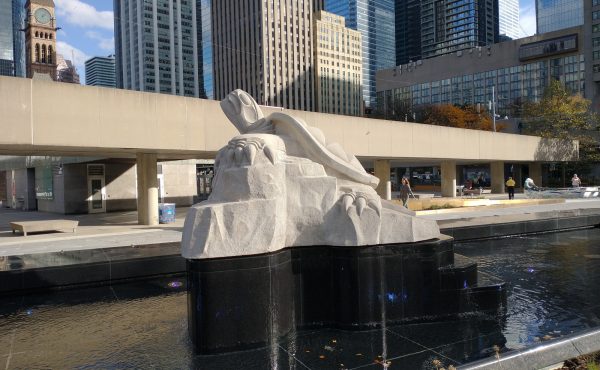

There were two highly revealing figures in the supplementary campaign disclosures filed by Mayor Rob Ford last week, as well as a lot of figures that weren’t disclosed, but would likely be even more revealing.
First, we learned that about 45% of Ford’s total campaign donations came across the transom after he was elected mayor. As York University professor Robert Macdermid has pointed out to me, supplicants, lobbyists and other people doing business with the city have far more incentive to donate to an elected mayor than to a candidate in a large field. And donate they did: during the Harmony dinner last January, the mayor pulled in almost $792,000, an impressive windfall after a lack-lustre and poorly managed fundraising effort during the campaign.
As it turns out, those additional dollars didn’t quite cover all of the mayor’s expenses. Since May, as we know, he’s been battling a compliance audit order, and has racked up over $55,000 in legal bills, which is the second impressive figure. By my reckoning, Tom Barlow, Ford’s lawyer, appeared at four or five compliance audit meetings, and prepared documents to support the mayor’s bid to have the order quashed by a court. If you do the math, Barlow probably clocked 100 hours on the mayor’s case, which will be heard in an Ontario court this spring.
To cover those unforeseen costs, the mayor held three extra fundraisers in June, according to the documents his campaign filed with the city. There are virtually no details given, except the total raised at the door ($71,500), the date, and a title (“Bromell,” “Harbour 60” and BILD”). The campaign contends it spent nothing to hold these events. As I reported in The Globe, one was held in a developer’s home.
Here’s what we don’t know (because the mayor’s office has decided, on the advice of counsel, to say nothing about campaign expenses in light of the appeal):
• Given the nature of the disclosure rules, it is very difficult to determine from the latest campaign records who gave money to the mayor at these events. Were the attendees lobbyists, businessmen who want a city contract, or developers looking for an approval? Can’t say.
• Was city business discussed at these events? If so, the mayor should, in theory, have directed them to notify the lobbyist registrar that a contact had taken place. No such registrations have appeared with the registrar.
• Did an individual or a business cover the cost of each event – i.e., took care of the food, drinks, rentals? Did the campaign record these expenditures as in-kind contributions? There is no evidence to suggest this disclosure has occurred.
• It is unclear whether the campaign sought to ensure that any in-kind contributions weren’t provided by a corporation, which not allowed under City of Toronto campaign rules.
Here’s something else to consider about the mayor’s legal expenses going forward. According to the filings, Barlow billed up to late September, 2011. Next spring, he will be on his feet in an Ontario court, asking for the compliance audit committee’s May 13 decision to be quashed. In the run-up to the appeal, he’ll be hard at work preparing his case. The meter will be ticking. And if Barlow loses, the mayor is not only looking at more and larger legal bills, but also fees for the accountants retained by counsel to respond to the forensic auditor’s questions.
Long story short, that $55,000 to Barlow’s firm will look like chump change compared to the professional fees Ford & Co. will have to pay over the duration of the compliance audit.
Except there will be this added plot twist: As of September 30, Rob Ford’s mayoral campaign formally closed its books. If mayor intends to raise funds to help cover future legal and accounting bills associated with the compliance audit, it is unclear whether he will be obliged to leave any paper trail at all.




5 comments
Why is a committee decision to instigate an audit subject to court appeal? Wouldn’t it make more sense to allow the results of the audit to be appealable instead?
Why is a committee decision to instigate an audit subject to court appeal? Wouldn’t it make more sense to allow the results of the audit to be appealable instead? Just more babysitting of the City by the Province, and the result is years of delay before we’ll get any insight into whether Ford broke the rules. Meanwhile, he’s still free to govern the City despite possibly having broken the campaign rules. WTF?
Whenever someone is willing to fight this hard and take on this kind of financial risk, they are either squeaky clean or really dirty. It may be a long time, if ever, before we find out which one Rob Ford is.
Mr. Lorinc… You’ve got to be kidding. Your observations are a pile of conjecture and what ifs. Do you really expect this kind of writing to have much credence at all.
@Anonymous: Recent changes to the Municipal Elections Act made compliance audit committee decisions exempt from council approval. Reason: a sitting council may have a political interest in shielding one of their members from an investigation, as has happened in other municipalities under previous rules. The members of the compliance audit committee are not city councillors; they are professionals — lawyers, election finance experts, election administrators, and they often serve on compliance audit committees for several municipalities at once. Because the province regulates municipalities, many types of council decisions are subject to appeal, which is only proper as it allows for the possibility that the compliance audit committee members may have erred in their decision. Ultimately, they help administer election law, which contains a range of penalties, from a slap on the wrist to removal from office, depending on the severity of the offense. Lastly, the municipal elections act stipulates that a compliance audit be conducted according to the rules governing judicial inquiries. All of which is a long-winded way of saying that the right of appeal is important, as the consequences are potentially grave.